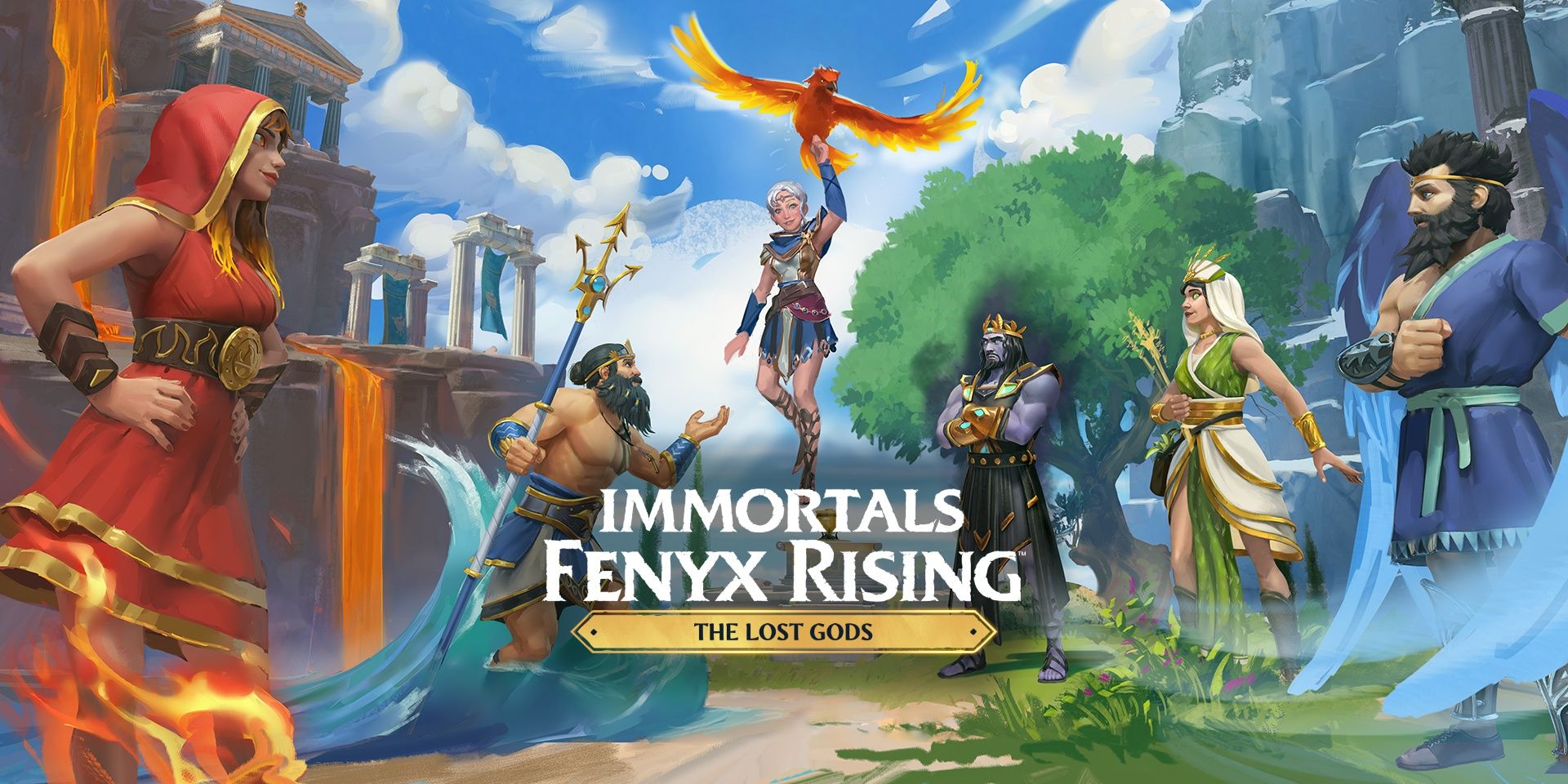Comparing Immortals Fenyx Rising's DLCs to Assassin's Creed Odyssey's

Ubisoft Quebec has built a reputation over the last few years with its two biggest hits, Assassin’s Creed Odyssey and Immortals Fenyx Rising. As such, there are comparisons to be drawn thanks to their similar settings, inspirations, and sandbox approach to gameplay.
With the God of War franchise having set sail for Norse mythology and looking poised to explore that setting even more closely on the PS5, Ubisoft Quebec have capitalized on the opportunity to position itself as experts in all things Greek Mythology in current trends. Comparing each game’s respective downloadable content roadmap shows clear signs of refinement as lessons have been learnt getting to that lofty position, all of which should lead to some exciting developments for both franchises in the future.

Season passes have become a constant factor of modern gaming with publishers attempting to lock players into their games for the long run with downloadable content, often before the base experience has even officially gone on sale. Ubisoft has always been one of the driving forces of this trend, so it’s no surprise to see that Assassin’s Creed Odyssey and Immortals Fenyx Rising heavily advertise the feature as the publisher’s preferred way of players getting access to new content. In terms of price both season passes position themselves as the cheapest monetary investment for fans of each game that know they want to experience everything that’s on offer.
Barring regular sales and discounts the season passes for each game will more often than not set players back by $39.99 USD, which in the case of Immortals Fenyx Rising provides a saving of $7.98 USD over buying the 3 DLC expansions included separately. Assassin’s Creed Odyssey’s Season Pass, on the other hand, offers an even sweeter saving, considering that bundle not only includes both of the game’s single-player expansions in their entirety, but also comes complete with Assassin’s Creed 3 Remastered and Assassin’s Creed 3 Liberation Remastered. Despite being two of the more polarizing entries in the franchise’s history, that’s still a saving of $50 USD over the combined RRP of each piece of content combined.

The comparative content disadvantage of Immortals Fenyx Rising’s Season Pass is offset considerably through the fact that the actual downloadable content that’s included is far more varied than what’s found in Assassin’s Creed Odyssey’s. On the wholem what’s offered walks the line between being more of what fans of the base game enjoyed, whilst repeatedly serving up surprises that many people wouldn’t have been able to predict were coming before the game's release. The first expansion "A New God" sets the tone for this philosophy by being a direct continuation of the main game’s story set in a brand new environment, whilst placing a heavier emphasis on more challenging puzzle-focused gameplay.
Things take an even more unexpected turn in the "Myths of the Eastern Realm," the game’s second DLC expansion created by Ubisoft Chengdu. In this Chinese mythology inspired setting, the gameplay and story beats of the main game are presented again through the lens of an entirely new cast of characters. If that wasn’t wildly different enough from anything else found within Immortals Fenyx Rising, the recently released third and final DLC expansion "The Lost Gods" reimagines the franchise in the style of top-down isometric games like Diablo.
One of the advantages of season passes, from a development perspective, is that confirmed investment prior to a game or DLC's release theoretically allows for more creative risks like these to be taken. Provided that Ubisoft continues to create content that's up to a quality standard and prices it respectfully, the future looks bright for DLC in both respective franchises.

By comparison, Assassin’s Creed Odyssey’s DLC is admittedly more constrained when it comes to the amount of brand new experiences it offers players. That’s not only down to the fact that there’s more risk limitations for any franchise that’s already got established expectations (in comparison to a brand new one), but also has as much to do with Ubisoft’s own hit and miss attempts to shake up the franchise’s formula in the past. For every naval combat success, there’s an Assassin’s Creed: Revelations tower defense section also lurking in the background.
That’s why instead of reinventing the wheel, the two paid DLC expansions stick to offering more of what made the base experience such a runaway commercial and critical success. Considering Assassin’s Creed Odyssey is held up as one of the best entry in the franchise for many people, familiarity isn’t always a bad policy when done correctly.
In a lot of ways, Assassin’s Creed Odyssey is inseparably linked with the previous installment Assassin’s Creed Origins, which is why the game’s first DLC expansion "Legacy of the First Blade" focuses on creating a direct bridge between both narratives arcs. While the final result of how that's ultimately executed doesn't quite live up to expectations, the real draw of the experience is rooted in the presence of the same fast-flowing combat and exploration of the base game. The second and final DLC installment "The Fate of Atlantis," on the other hand, is a much more accomplished package in every department.
Set within the Assassin’s Creed universe’s interpretation of the Ancient Greek afterlife, this final slice of downloadable content clearly played an important role in cementing Ubisoft Quebec’s second realization of those same themes and DLC plans in Immortals Fenyx Rising.
Immortals Fenyx Rising is out now on PC, PS4, PS5, Stadia, Switch, Xbox One, and Xbox Series X.

Post a Comment